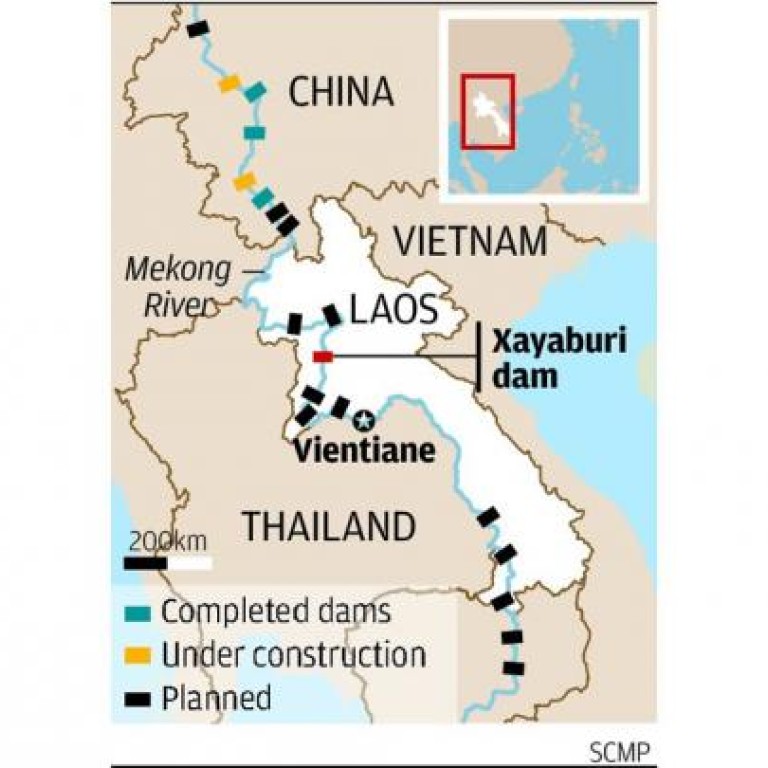
Laos' construction of barrage triggers Mekong crisis
Commission that controls development on the Mekong, a regional lifeline, is powerless to stop work on a massive hydropower scheme
The four-nation Mekong River Commission (MRC) that supposedly co-ordinates activity on Southeast Asian's most important waterway faces a credibility crisis over the refusal by Laos to listen to objections to its controversial Xayaburi dam project.
At a ministerial-level meeting of the commission this week, Cambodia and Vietnam criticised Laos for unilaterally pressing ahead with the dam, the first on the Lower Mekong being built without approval from the MRC.
Critics fear the environmental impact of the dam, which will supply electricity to the MRC's fourth member, Thailand, and question the point of the commission's existence if members do not seek consensus.
Cambodian officials said at the meeting in Luang Prabang that the host nation had wrongly interpreted the 1995 Mekong Treaty, which demands that communities, non-governmental organisations (NGOs), and all stakeholders be consulted prior to any decision on a dam.
Laos unilaterally ended consultation after six months, despite vigorous objections to the dam in the country's north. It is now under construction by a Thai firm and other partners.
The MRC's development partners also issued a statement calling for an extension of consultation: "We believe the participation of civil society should be improved, and that the consultation period of six months is too short."
The development partners include donor states such as the United States, Australia, Germany and Japan, the World Bank and Asian Development Bank and NGOs such as the WWF and the International Union for the Conservation of Nature.
The statement added: "We remain concerned about the social impacts and environmental risks associated with the construction of the Xayaburi hydropower dam in the Lao People's Democratic Republic."
MRC donor governments also complained to Laos about its decision to exclude the WWF from this week's meeting. The NGO, which has sponsored scientific reports on hydropower and the Mekong and has held observer status since 2001, has never before been excluded from an MRC ministerial council meeting.
Kirk Herbertson, Southeast Asia policy co-ordinator for International Rivers, said: "The Mekong River Commission is in desperate need of legal and institutional reform. It's a broken process that needs immediate fixing."
Without an effective MRC to ensure international co-operation, and "if Laos continues to dismiss their neighbours' concerns, we can expect a regional water conflict to escalate".
Thailand has supported the corporate interests involved in building and financing the Xayaburi dam, but it has also endorsed a call by Cambodia and Vietnam for an MRC scientific study of social, economic and environmental impacts.
Laos unilaterally launched construction after the last MRC ministerial meeting last year.
Jian-hua Meng, sustainable hydropower specialist at the WWF, said the MRC stood at a crossroads. "If decision-making continues to occur outside of the MRC, the institution will soon lose its legitimacy and US$300 million of international donor support to the commission will be wasted," Meng said.
Despite Thai corporate links to the dam, anti-dam protests backed by NGOs and some politicians have sprung up in the Thai provinces bordering the river.
Former Thai senator and chairman of the senate foreign relations committee Dr Kraisak Choonhavan called on Thailand to cancel the contract to buy 95 per cent of the electricity from the Xayaburi dam.

